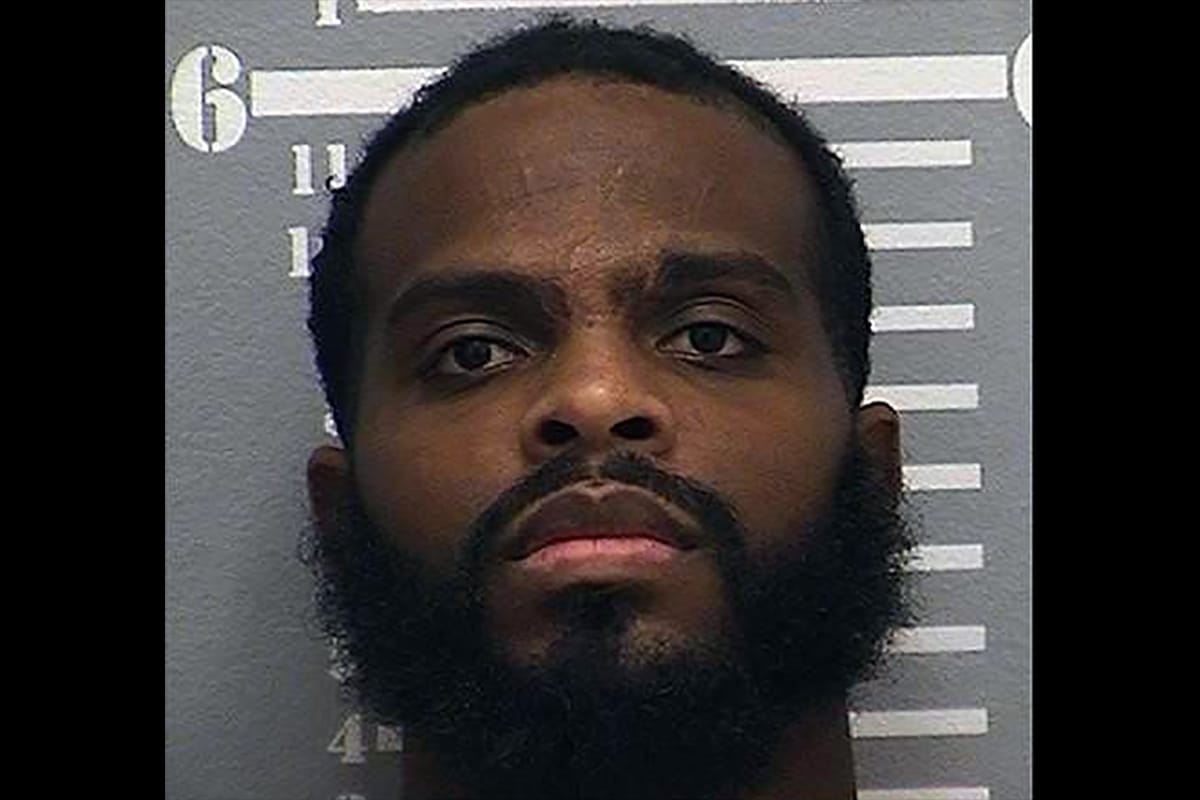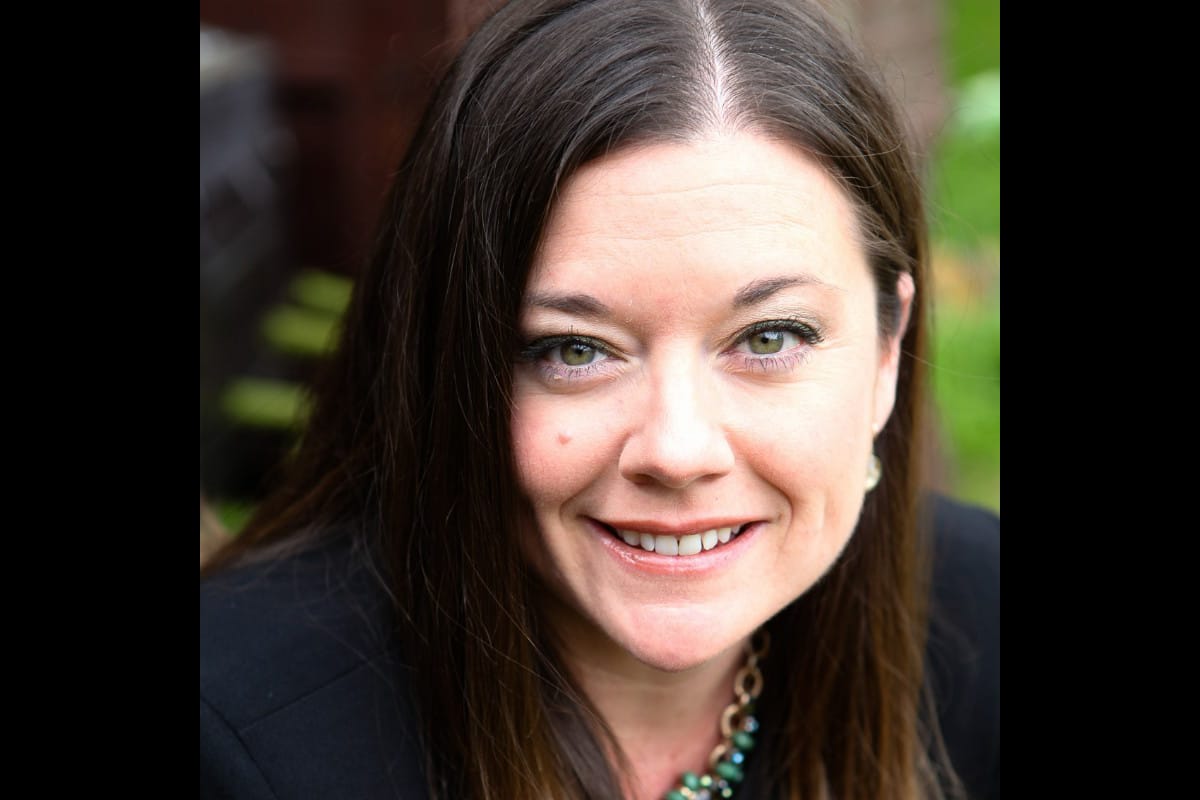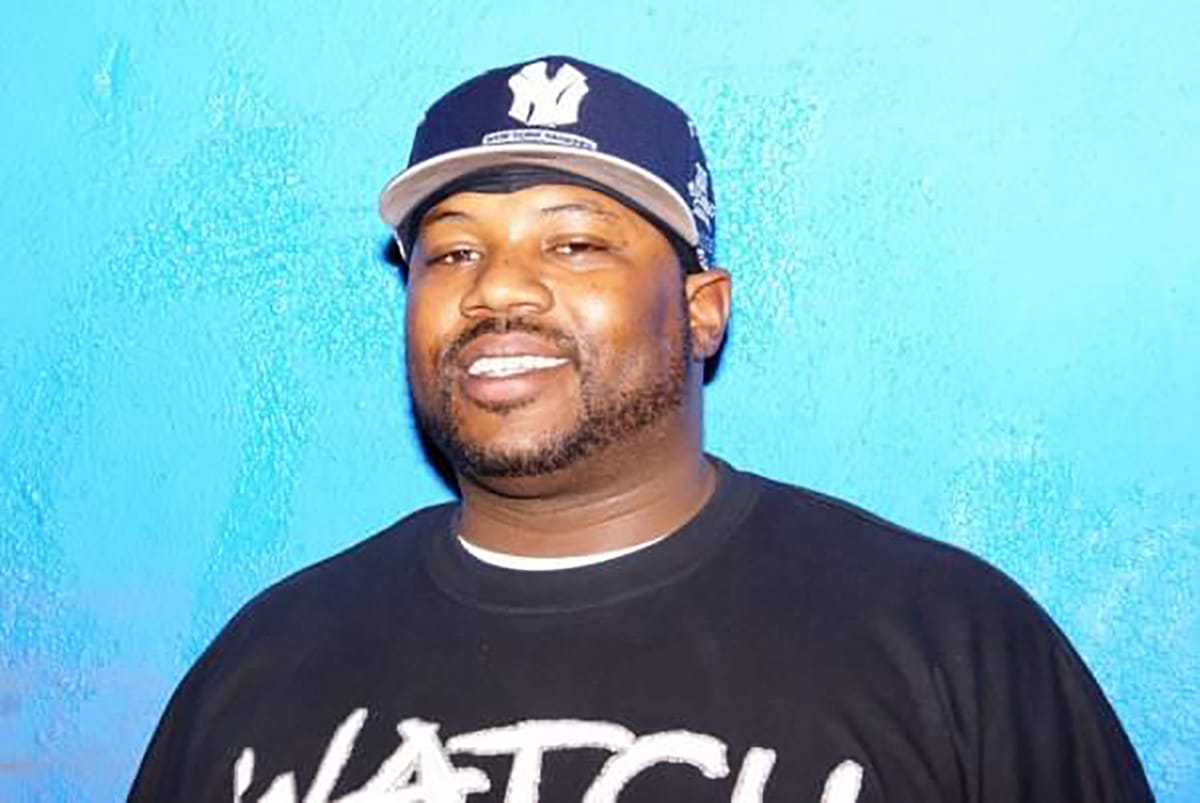He was charged with 4 murders. Pamela Price gave him a deal
"Why would I want to forgive him?" said the mother of one of the victims. "To me, it was like a serial killer."

A man who had been charged with four murders in Oakland over just six weeks is expected to be free in months following a recent plea deal in Alameda County.
The deal left several mothers whose sons were killed during the crime spree shattered and confused, they told The Scanner.
Stacie Pettigrew, the lead prosecutor on the case who resigned after DA Pamela Price took office, also spoke out for the first time about how the case was handled.
"These gang members wanted to be known as the most violent gangsters in Oakland," said Pettigrew, who had the case for nearly a decade. "It would have resolved through a jury trial and a verdict had we been allowed to go forward. But instead, she gave them the deal of a lifetime and he'll be out next year."
According to court papers, Dijon Holifield, now 33, was part of a "violent criminal street gang" that was responsible for a series of murders and a slew of other shootings during a "crime spree" in the summer of 2008.
One of the victims was an innocent bystander, a father of two who was returning a laptop charger to a friend when he was caught in a drive-by shooting in North Oakland that involved at least three guns and nearly 40 rounds of ammunition.
One man was killed in an ambush involving five shooters and 92 rounds, one was killed in a carjacking attempt and one was a contract killing, a murder-for-hire, for which the killers were paid at least $10,000, according to court papers.
The prosecution's case included ballistics and DNA evidence as well as testimony from a key witness: a fellow gang member with intimate knowledge of the crimes.
Twenty-six people testified during a preliminary hearing in which a judge said the key witness was credible, ultimately holding Dijon Holifield and co-defendant Delonzo Logwood to answer on the raft of charges against them.
The charges, which included five murders, two attempted murders and carjacking, along with serious gang and gun enhancements, could have sent the men to prison for life without parole if they had been convicted.

But the trajectory of the case changed drastically when DA Pamela Price was elected.
Delonzo Logwood, Holifield's co-defendant, was repeatedly in the headlines last year after Price announced a controversial plea deal for him.
Meanwhile, Holifield flew under the radar because his case was stalled in juvenile court at the time.
In recent months, Holifield returned to adult court for a plea deal that quietly saw most of his charges dropped in a settlement similar to Logwood's.
In the end, Holifield was convicted of one count of manslaughter with a gun enhancement. He was transferred to Kern Valley State Prison outside Bakersfield earlier this month.
Holifield got a 13-year sentence, but he's expected to be released early next year because he's been in custody on the charges since 2013. Logwood is also set to be freed next year.
"We're not happy with the outcome. It should have been more time," said Regina Thomas, whose 18-year-old son James was killed.
"It's over," she added. "Everybody's tired."
16 years trying to find justice
Holifield was originally charged with the murder-for-hire of Eric Ford, 22, on July 1, 2008; the murder of Richard Carter, 30, during an attempted robbery and carjacking on July 31, 2008, when he was picking up snacks at a local market; the murder of 30-year-old Keenan Hall, the innocent bystander, on Aug. 12, 2008; and the murder of James Thomas, 18, who was killed several hours later, on Aug. 13, in an ambush that involved so many bullets that OPD ran out of crime scene markers for them.
Less than a week later, while trying to rob a drug dealer, Holifield dropped a gun that police said he had used in the murders of Thomas and Hall. The ballistics were a match.
Mothers Regina Thomas and Linda Hall attended Holifield's sentencing hearing in September. The Berkeley Scanner was the only news outlet in the courtroom.
Regina Thomas was there to witness the ruling but elected not to make remarks.
Linda Hall and her granddaughter, Keenan's daughter, both wrote letters to be read into the record.
"I was nearly 2 years old when my father passed away and I didn’t fully grasp the impact of his death on our family," his daughter wrote. Her little brother had been just 3 months old when Keenan was killed.
"Growing up without a father and not knowing him has been challenging," she wrote. "I often wish he could have been there to witness my growth, help me through struggles, and celebrate my achievements."
She couldn't attend the hearing because she was away starting college on an athletic scholarship with plans to study architectural design.
"As I head into college … to run track while pursuing my degree, I can't help but feel the absence of a father figure at my events," she wrote. "Like any child, I longed for that support and encouragement at the finish line of my races. I often wonder how different my life would be if I had my father by my side."
In her letter, Linda Hall described how she'd spent 16 years trying to find justice for her son.
"There’s nothing anyone can say or do that will bring back my son Keenan," she wrote. "I will always miss and mourn for my son whom you murdered."
In the letter, she urged Holifield to make amends during his time in prison and find a way to make his future matter.
"Yes, society is messed up sometimes, don’t make the mess worse," she wrote. "Look for ways to make it better."
"To me, it was like a serial killer"

In an interview after the sentencing hearing, Linda Hall recalled how everything in the case changed after Price was elected.
The homicides happened in 2008 but Holifield wasn't charged until 2013. Logwood was charged two years later.
Hall said it had been a long road, but that she and the other mothers had always felt supported by prosecutor Stacie Pettigrew and Maria Suniga, the victim advocate on the case.
For years, the DA's office gave the mothers regular updates, answering their questions and alerting them to key hearings.
"They were very accommodating," Hall said. "I never missed a court date, so I was able to keep up with everything."
Shortly after her election, Price called the mothers together for a meeting, Hall said.
When Hall arrived, she was alarmed that Stacie and Maria weren't there.
When the mothers asked about Maria, Hall said, Price told them she was "not with us anymore." It was a shock. And things only got worse.
During the meeting, Hall said Price — who had just taken office — questioned key evidence in the case, evidence the mothers had seen presented and argued in court during a lengthy preliminary hearing in 2018.
"That hurt me so bad," Hall said, "when Price came in and just shut it down."
In the meeting, Price emphasized how the defendants had been young and should be forgiven because they hadn't meant to do it. Logwood was 18 and Holifield was a few months shy of it in the summer of 2008.
"But these young men had five murders," Hall said. "Why would I want to forgive him? To me, it was like a serial killer."
"How do you drop it to a manslaughter?" Hall continued. "That was troubling to me. We didn't get the full justice we should have gotten."
Thea Ford, whose son Eric was killed, said the years of court hearings she and her family attended felt "senseless" after the case changed direction last year.
"We all had been in court every day up until the new DA, Pamela Price, got elected," Ford said. "After that, everything went downhill."
Regina Thomas said everything became confused after Pettigrew was gone.
The new DA insisted that the plea deal was the "best alternative." Communication dried up and she never understood what happened.
"It just started being a lot of excuses," Thomas said. "I was like, 'This doesn't sound right.' Somewhere along the lines, somebody dropped the ball."
Prosecutor: "It's absurd that this is a normal plea agreement"

Unlike the Logwood plea deal, which DA Price commented on repeatedly last year, she issued no public statements on Holifield's sentencing last month.
An inquiry about it from The Scanner went unanswered.
"She got so much blowback in the press for what happened with Logwood — yet she wanted the same results in a case where the defendant has an extra murder, and it's more provable with DNA and ballistics," said Pettigrew, the former lead prosecutor on the case. "She would have gotten skewered."
Price had announced the Logwood deal in one of her first public statements last year, blaming "the state of the evidence and the age of the cases" for her decision to resolve it.
In a recent interview, Pettigrew, who worked at the Alameda County DA's office for more than 20 years and now works for DA Brooke Jenkins in San Francisco, strongly disputed the idea that the evidence against Holifield and Logwood had been weak.
Pettigrew recalled how arguments had started in the Logwood trial, and a judge had been granting her motions, when the November 2022 election happened.
That's when the defense asked for a break in the proceedings — until Jan. 6.
"They wanted to talk to her," Pettigrew said, of Price, who took office in January 2023.
Pettigrew said the age of the case was not an issue either. It could have moved faster at any point — if the defense had asked for it.
"I had that case for over eight years. They waived time and sat in custody for eight years and never asked for an offer," she said.
In an "exclusive" interview about the case last year with a TV reporter who became her spokesman, Price said "there was nothing unusual about the plea deal" Logwood had gotten — manslaughter with a gun enhancement, essentially the same as Holifield.
(The TV interview included numerous erroneous claims.)
Pettigrew laughed out loud when asked if the plea deals had been typical.
"You have individuals charged with multiple murders on separate days. These were planned and premeditated," she said. "On separate days, they made the decision to take these high-powered assault weapons and unleash them on the citizens of Oakland. It's absurd that this is a normal plea agreement."
Last year, Price at times blamed the outcome of the case on Pettigrew, saying she had made a flawed agreement with a key witness who refused to testify at trial.
Pettigrew said that wasn't true.
"He was still coming in while I was on the case," Pettigrew said. "And then she comes in and announces plans to let these guys who want to kill him out of custody on a deal. He didn't trust the process at that point."
Even still, Pettigrew said, his refusal to participate would not have been the end of it.
The witness had taken the stand for four days during the preliminary hearing. All of that testimony could have been used at trial.
All the normal mechanisms to require uncooperative witnesses to testify had also been possible, from subpoenas to arrest, but the DA's office under Price had just let it go, Pettigrew said.
Pettigrew said the deals were "devastating," particularly "when you look at the sheer destruction that these two killers left and the deal they got compared to what they were facing" if convicted — life in prison without parole.
"Every single one of those victims was Black and didn't deserve to die," Pettigrew said. "And these moms, they've gotten such short shrift."
Pettigrew "knew that case backwards and forwards"
In one of Price's public statements about the case last year, she included it among cases filed by the prior DA, Nancy O'Malley, that had left families "'in limbo' for decades" waiting on resolution.
The mothers in the Holifield-Logwood case disputed that characterization.
They said they had been committed to seeing the case through trial and had complete faith in prosecutor Stacie Pettigrew to fight for them.
Thea Ford, Eric's mother, recalled how Pettigrew had been "magnificent" in court during the six-week preliminary hearing.
"She knew that case backwards and forwards. She was my hero," Ford said. "That's why we went to court every day — because I knew she was gonna bring justice."
Ford said Maria, the victim advocate, had been a "rock" for the mothers over the years.
"Aside from Stacie, Maria was that bond that we had," Ford said. "I loved her. She was there for us."
The new DA and victim advocate had been a letdown.
"When this other person took over for Maria, there was no empathy whatsoever," Ford said. "I guess they were just doing their job. Everything fell apart, so there was no connection."
Ford said she did not attend Holifield's sentencing hearing because she had been so disappointed in how Price handled the Logwood case last year.
"I refused to go back to Oakland after that. I just felt betrayed," she said. "There's nothing there for me. I'll never go there again."
Eric Ford: "He was the guy that lit up the room"
Ford said her son Eric had just become a father in March 2008.
He turned 22 in April of that year and had been applying for training programs when he was killed in July.
"I saw the letters that came after he passed away," she said. He had gotten his high school diploma and wanted to make a good life for his new baby.
Eric was loving and outgoing. He had two dogs that he adored and was very close to his older brother who had been born two years earlier, just four days apart.
"They celebrated their birthdays together every year until they were teenagers," she said.
On Eric's birthday, Thea still cooks his favorite meal: meatloaf with mashed potatoes and gravy.
Eric grew up playing basketball in Oakland's recreation league. Thea and her husband went to his games to cheer for him every weekend.
He stopped playing ball after a serious injury — but then he "found girls," which became a new passion.
The couple raised their sons in a close-knit neighborhood in Oakland near Fruitvale Avenue. There were block parties with face painting and potluck barbecues. The fire department would come.
Eric always loved being silly and making people laugh.
"When he walked in a room, everybody would just be so happy that he showed up," she said. "He was the guy that lit up the room."
She remembered Eric in the hospital when his son was born, holding his baby boy. He was such a presence that all the nurses got to know him.
And when Thea's mother was sick at Highland, Eric would go to keep her company and keep her spirits up. When she felt her care was lacking, Eric dropped everything to take care of it.
"Nobody's gonna mistreat my grandmama," he had told her.
Thea remembered her son as relentlessly positive.
"You couldn't say anything mean about anybody. He would stick up for them," she said. "He would help everybody, anybody. It doesn't matter who it was."
Shortly before his death, Thea and her husband bought a large house in Contra Costa County where Eric, his girlfriend and the baby were also going to live.
But then Eric was killed and Thea's husband died from complications after a minor surgery.
"My life just changed. We lost Eric and then my husband. But I always think that — I still had a beautiful life," she said. "I'm just trying to be as strong as I can. You can't do anything but keep on living."
Even 16 years later, the pain of Eric's death is overwhelming. Some things are still too hard. The photo albums, for example. When the boys were growing up, Thea documented everything.
"I have albums and albums of pictures and I can't look at any of them. I can't do it," she said. "I still think about him every single day, I think about my baby. There's no closure, even after all these years."
"All the gunfire, you thought it was a war"
Six weeks after Eric Ford was killed, James Thomas and Keenan Hall were killed in Oakland just hours apart.
Regina Thomas said James, 18, left a daughter and his girlfriend behind. The baby hadn't been born when he was killed: He never got to meet her.
The middle of three brothers, James was about to graduate high school when he was killed.
Growing up, he always looked out for his baby brother. They were 14 years apart. James would often take the toddler to the park to give their mom a break.
"If he cared for you, he had your back in anything and everything," Regina said.
James loved his nieces and the PlayStation. He loved cheeseburgers from McDonald's. He was good at math and he loved to bake, mostly cookies.
He also loved sports and was part of a neighborhood dance group that would compete. He loved to build things and once got second place in a contest where he built a car.
Regina said she didn't have any pictures of James because she'd kept the family album in a storage unit she had lost. Her life had been somewhat tumultuous over the years.
But she had done everything possible for her son. Her mother also helped raise him to give his life more stability.
"I would give him my last pennies if I had to roll them," she said.
She recalled how a man and woman, Stacie Pettigrew, had come to her house six years after James was killed to let her know they had found the man who did it.
It had been so long that she initially thought they were telling her something had happened to her grandson, who was also called James.
"It was like a shock and then relief," she said. She started to cry and remembered asking, "Can you give me a minute?"
She remembered the summer of 2008 as a particularly violent time in Oakland.
Her son's death had been on the news, in part because the shooters had fired nearly 100 rounds that night.
And it wasn't just James, she said. The sons of six of her friends were also killed that summer.
"Everywhere we turned around, somebody we knew was dying," she said. "So much damage was done. All the gunfire, you thought it was a war."
After her son's death, Regina would go to his grave on his birthday each year. Now, she'll often pick up an Oreo cake and fry chicken wings, his favorites.
"I think about him or I listen to a song he liked. I cry and I tell him, 'I love you and I miss you,'" she said. "I normally just try to be peaceful. I pray a lot."
Regina Thomas said she hadn't gone to earlier court hearings. The sentencing hearing was the first time she ever saw Dijon Holifield.
"He had no remorse. He wasn't apologetic. It's very hurtful," she said. "He took my son and others from us, and we won't ever know the reason why. I'll never know."
She said it didn't make sense to her that he would now be out of prison in a matter of months.
"That's not fair. My son can't come home to me," she said. "It'll never be off my heart."
She said it seemed like the sentence wasn't enough, that Holifield should have been convicted of murder and should have gotten life. So many people were hurt. His actions seemed so callous.
"I'm not satisfied with it, but I got a little justice out of it," she said. "I'd rather take a little bit than nothing."
"She's not for the victims, she's for the criminals"

Keenan Hall had just turned 30 when he was killed while dropping off a laptop charger he had borrowed from a friend near 45th and Market streets in North Oakland.
He had a 2-year-old girl and a 3-month-old baby boy at the time.
"He was there for both deliveries. That was a really exciting thing for him to see his children born," said Keenan's mother, Linda Hall. "He was one proud Papa."
"He didn't start too early. He was just starting a family," she continued. "That was difficult for us to adjust to, killed like that with little babies."
Linda, a retired postal worker, also remembered how Keenan was always giving her the baby after his son was born.
"He would just kind of put him on my shoulder. I would tease him about it: 'Why you keep putting your baby on me?'"
"You gotta get close!" he would tell her.
Keenan was always "the one that kept you laughing" and "a pretty good jokester, too." He was a musician and he loved to make beats.
Even as he matured and became increasingly independent, Keenan would call his mother every day.
"Whenever we talked or hung up, it was always, 'I love you,'" she said. "Especially when he moved to Fremont, he was the kind who would call me and we'd talk until he pulled up in his driveway. We could talk about anything."
"That's what I miss, just to hear his voice," she said. "My son is always on my mind."
Hall said she had done everything she could to teach her grandson about his father.
"He has no recollection of him," she said. "I talk about his dad to him all the time. I have pictures. I just try to fill in."
Hall said she was still struggling to make sense of how the case changed so much under Pamela Price.
She had listened carefully to the evidence at the preliminary hearing and felt that what Price told the mothers at that first meeting just didn't add up.
"She's not for the victims, she's for the criminals," Hall said. "It's just like she has no sympathy for people like myself and other family members."
"Sitting in that courtroom day after day, it was just all for nothing," said Thea Ford. "How could they do that? That's where the justice system has gone to: You can just commit crimes now and nobody's gonna get punished for it. I don't understand it."
"We felt like — right there. Right there. You had it," said Regina Thomas. "How did you let it get away? That's the hurting part."




